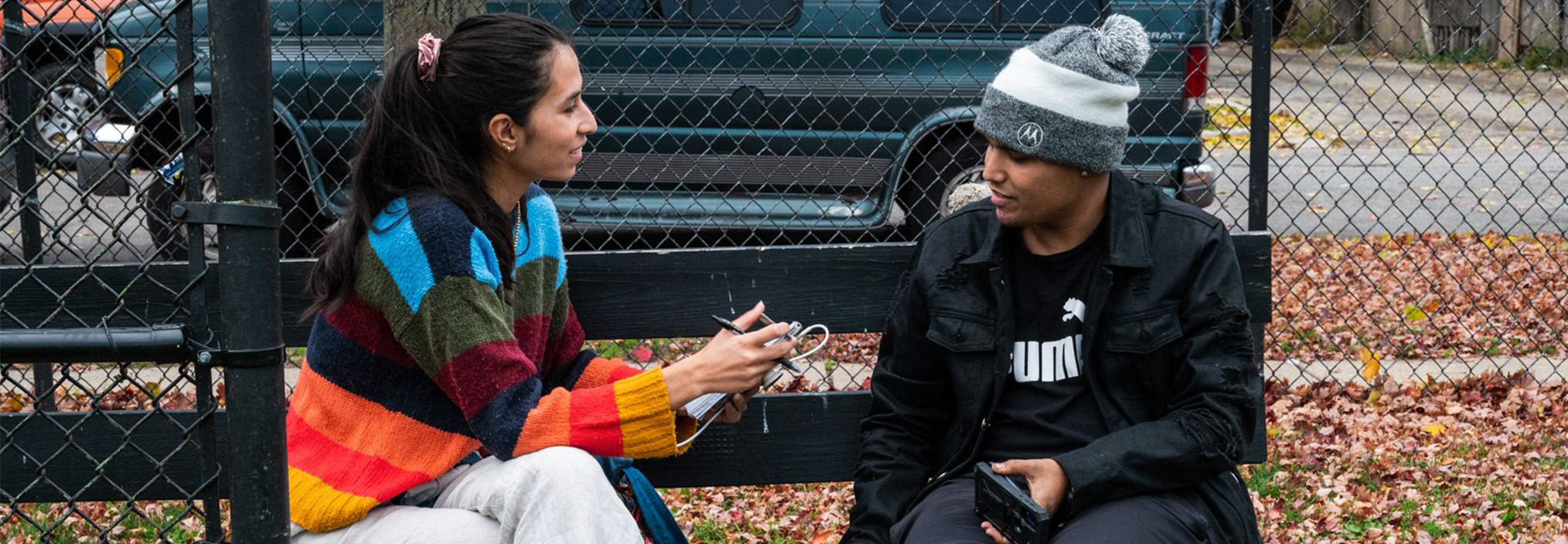
Reporter Madison Savedra interviews Nolram Cardozo, who migrated from Venezuela, in Chicago's Humboldt Park neighborhood. Credit: Colin Boyle/Block Club Chicago
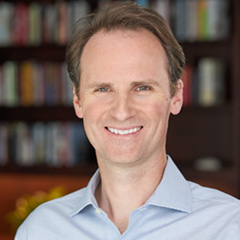
John Palfrey, President
April 24, 2024
More than half of the world’s population lives in a country holding an election this year. It is a consequential moment for democracy as billions of individuals make their voices heard to shape their communities and the world.
Against that backdrop, we face a divisive socio-political environment, including wars and violence across the globe, and attacks on many of the values we hold dear. News media is facing challenges, and is often viewed with distrust and polarization. There are many actors who seek to undermine American democracy, efforts to achieve racial equity, and work to address climate change. There is pushback against the freedom to support causes that align with MacArthur’s values and mission and to invest responsibly, considering the impact of our dollars.
“We need to form partnerships, build community, and cultivate solidarity to make progress.”
With all this and more, the situation can sometimes feel dire. And yet, as I take this opportunity to reflect on how to help reverse these alarming trends, I see hope. To confront these challenges, we need to form partnerships, build community, and cultivate solidarity to make progress. We must lean into this way of being and working.
Last year was a year of collaboration where we accomplished great things together. And promising efforts are already in progress to meet this moment and continue gaining momentum.
Supporting Local News Supports Democracy
One of these promising efforts is in local news. In an election year, supporting local news is an imperative.
As local newsrooms have disappeared across America, civic engagement has faded, social bonds have frayed, misinformation has surged, and government accountability has dwindled. National outlets, by definition, do not focus on issues of local importance and often focus on only the most polarizing, sensationalized subjects. Without local newsrooms, there is an information vacuum that leaves people without the facts they need to participate in community meetings, speak with their school boards, and make their voice heard at the polls.
“Journalism, particularly local, trusted news is the fabric of our democracy.”
Journalism, particularly local, trusted news is the fabric of our democracy. Local news, that works with and for communities, can be a medium that strengthens our communities, tells stories that build shared understanding, and holds power to account.
And over the last decade, news organizations, news founders, and news funders have stepped up to build and invest in emerging news and information ecosystems across the country.
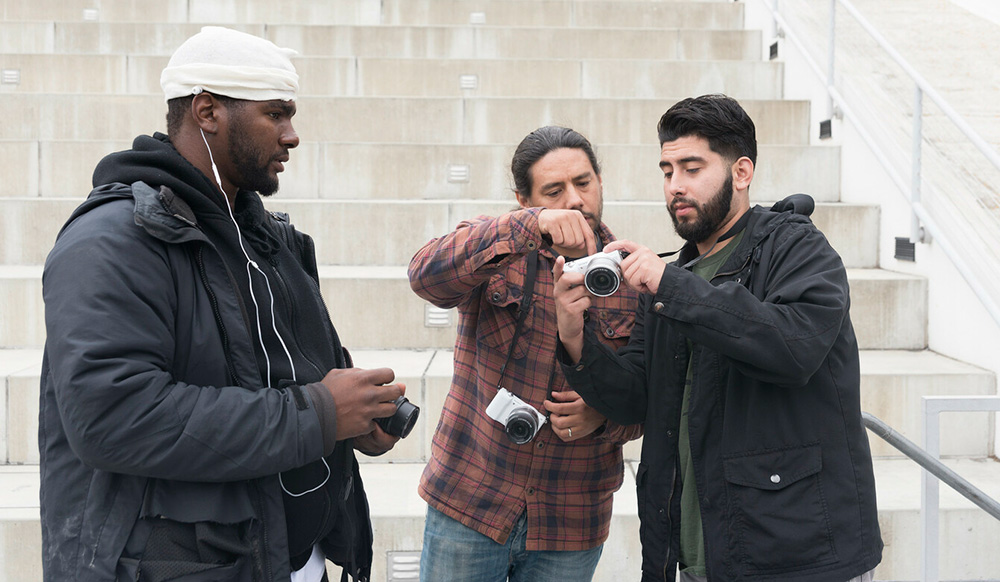
Since my essay last year, MacArthur and a coalition of funders launched Press Forward, a national movement to strengthen communities by reinvigorating local news. Press Forward will invest more than $500 million over five years to re-center local news as a force for community cohesion; support new models and solutions that are ready to scale; and close longstanding inequities in journalism coverage and practice.
And over the last decade, news organizations, news founders, and news funders have stepped up to build and invest in emerging news and information ecosystems across the country.
Like democracy, thriving journalism requires sustained engagement and participation. Press Forward represents a realization that this issue—the need to reimagine how we support local news across the country—is far bigger than what a few national foundations can address alone. For local news to be sustainable over the long term, individuals and communities need to engage.
So, Press Forward is also a call to action. Philanthropy is doing its part and is calling others in. Everyone needs to contribute to make this work.
“Thriving journalism requires sustained engagement and participation”
We need enthusiastic supporters and donors at every level to change how America sustains local news. Press Forward started with 22 donors, and now a growing network of nearly 60 funders are supporting a local news movement. There are now 17 place-based Press Forward Local Chapters across the country—from Alaska to South Florida, and San Antonio to Pittsburgh.
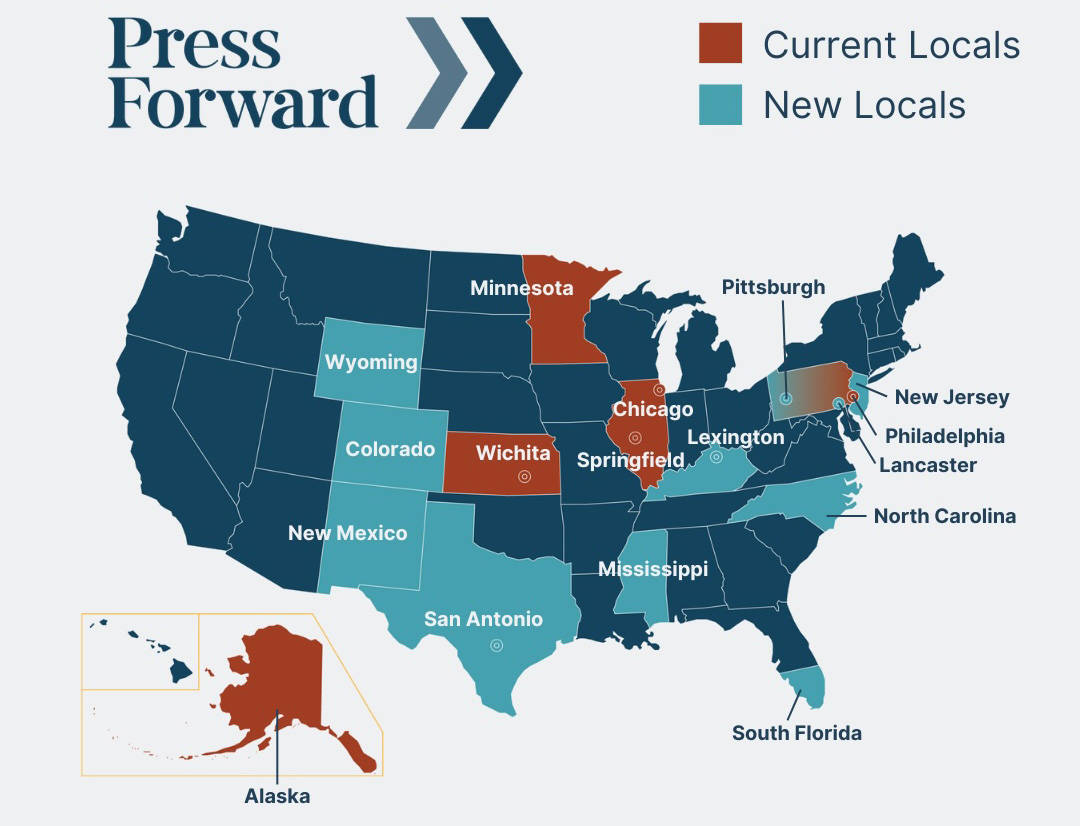
Local Chapters are springing up as funders are collaborating across states and regions to bring new donors together to expand resources for local news and information. Our coalition hopes to raise the next $500 million for Press Forward at the local level.
This requires a culture change. Press Forward is an opportunity to make a major shift in how we support local news in America.
As individuals, we will need to invest in local news the same way that we invest in arts and culture, hospitals, or our alma maters. We will need to add it to our list of philanthropic commitments—or at least to our list of subscriptions, alongside Amazon Prime, Hulu, and Netflix.
Local news is not the only answer to the challenges facing our democracy, but it is one very tangible and practical intervention that can be funded, strengthened, and expanded.
Local News is Trusted News
To be clear, a stronger democracy is not the only goal of local news. Local news helps people get the information they need to make decisions in their daily lives. It helps people access resources, holds public officials accountable, and knits communities together.
Press Forward is independent of ideology. It reflects a pillar of More Perfect, a bipartisan initiative that is advancing five interrelated democracy goals, one of which is Access to Trusted News and Information.
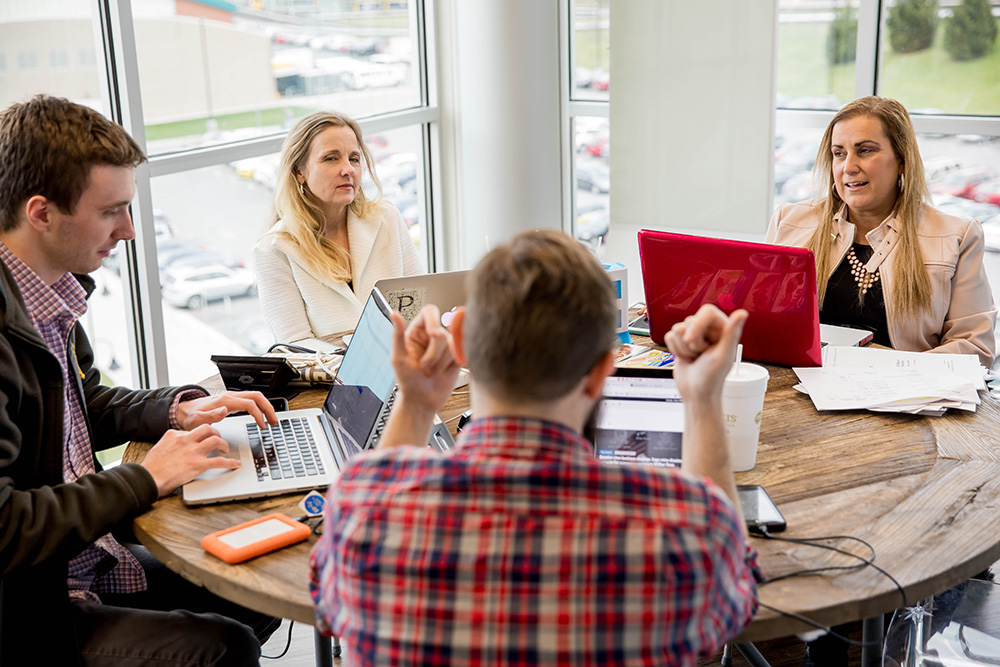
Many Americans mistrust news media altogether, and local news is best positioned to rebuild that trust. Messengers who are part of and embedded in neighborhoods and communities are more trusted than national conglomerates, and they often provide the news that matters most in people’s lives.
According to research from Reuters Institute, in the U.S., about 42 percent of Americans say they avoid the news, especially about national politics. By contrast, robust public media tends to increase trust in news. News avoidance exacerbates information vacuums, often making people more vulnerable to mis- and disinformation and less able to make informed decisions or share context with their peers.
“A more diverse, dynamic generation of leaders is redefining the news and media landscape.”
Block Club Chicago shows that a scrappy news and journalism nonprofit covering Chicago’s neighborhoods can break crucial stories, even in a city that has bigger and better funded news outlets. Because they are part of the communities they serve, they catch important stories and build trust with residents. Block Club broke a story of Loretto Hospital’s mis-appropriation of COVID-19 vaccines from its underserved West Side community to ineligible people, resulting in an FBI investigation and organizational change. And they do this work while gaining subscribers and sustaining operations with a combination of philanthropic support and individual memberships.
It is that entrepreneurial spirit, being guided by a more diverse, dynamic generation of leaders, that is redefining the news and media landscape. They are rethinking product development and distribution, and many are finding success.
We are also learning from universities and student journalists who are actively filling news coverage gaps by establishing or running community sites in news deserts and deeply underserved communities; expanding statehouse coverage through a supportive network of programs; and using their university-licensed public media stations as a platform to distribute news.
At MacArthur, we were thrilled to support Dean Geeta Anand at the U.C. Berkeley Graduate School of Journalism and Dean Hub Brown, at the University of Florida, who researched potential collaboration models among journalism programs. Their early findings suggest a range of opportunities for universities to step up and step in—from greater information sharing of best practices to creating coverage beats for major events, such as elections, regional national disasters, or public health crises.
More nonprofit newsrooms are stepping into the gaps; mission-minded entrepreneurs are creating new tools and systems to support journalism; and audiences are beginning to understand their role in sustaining good journalism.
100 Days in Appalachia offers news reporting on issues of significance to residents of Appalachia, with an emphasis on reaching young people and leading a community of practice, providing security and safety training, and other support services for reporters covering extremism. The newsroom uses the Creative Commons to allow republishing, expanding reach and potential for collaboration.
As all of these new ideas, experiments, and innovations play out, we need philanthropy to serve as a bridge to ensure that fledgling and legacy local news outlets survive turbulences. They work to provide accurate and relevant information and news to the public, so that all Americans, regardless of where they live or their political views, can turn to a source of news that is fact-based and reliable.
Disagreeing Better
Journalism done best provides the trusted basis of information through which we can come together to achieve shared goals. When rooted in a shared reality, we can disagree productively, with respect. When we focus on broad ideology, we retreat into separate spaces and create an environment where mis- and disinformation can thrive.
But when we bring discourse down to the block level, community level, town level, it becomes easier to find points of agreement. In this era, norms of discussion seem to have become antagonistic and adversarial about the most important issues impacting our lives. We often see disagreement expressed by dehumanizing individuals or communities who hold different perspectives. Much of this disagreement happens online, but it is not uncommon for the same dynamic to suck up all of the oxygen in real-life interactions, too.
“Disagreeing better helps us get to solutions to seemingly intractable problems.”
By the time the conversation has made it to that point, people stop listening to each other. And that eliminates any chance for us to see others’ experiences or work toward solutions.
We have to learn how to disagree better.
At MacArthur, in that spirit, we often bring together stakeholders from opposite sides of the table. In our Criminal Justice program, we aim to bring together people who take adversarial positions—including judges, victims of crime, prosecutors, people who have been incarcerated, public defenders, and sheriffs—with a goal to reform the legal system and improve it for everyone. Specifically, they are focused on reducing the number of people in jails.
One of the biggest learnings from MacArthur’s Criminal Justice grantmaking is the need to include everyone who is impacted. We can agree on a goal of working toward justice and safety, even if we have different experiences. Work with prosecutors helps reveal inefficiencies; people who have been incarcerated share insights about the barriers they face when they return home; consulting law enforcement and victims of crime helps center safety and care in the carceral system and in communities. Overall, because the work includes a diverse array of voices, input, and support, communities have shown that we can reduce jail populations, make the criminal justice system more equitable and fair, and keep communities safe.
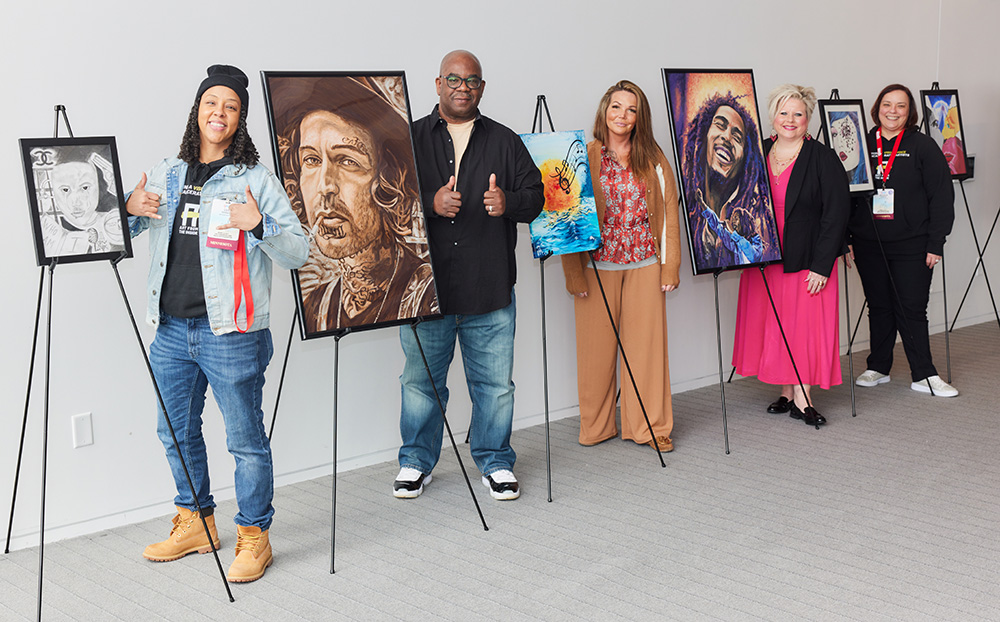
Disagreeing better helps us get to solutions to seemingly intractable problems. We can learn to come together on issues that divide us; and disagreeing better requires embracing diversity.
The fact is, we know that diversity makes us stronger. The evidence points to diversity driving better outcomes: more diverse companies outperform their peers; better representation in healthcare improves patient outcomes; multiethnic friendships in integrated communities increases trust in society. A thriving democracy requires recognizing all the dimensions of our diversity and finding ways to serve the common good.
Diversity of ideas help our communities thrive. And it is essential to our democracy. But to reap the benefits of the diversity of experiences we already have, we must invest in creating a more equitable society.
MacArthur will continue to support work that is fostering equity and inclusion. We are aligned with our peers on this issue, including foundations that hold different views, priorities, and values in other areas. We hold that foundations have a First Amendment right to make grants that align with their values—including support for historically marginalized communities. With the funders who have signed onto this statement, we agree that charitable giving is an expression of values and has a positive impact for communities.
“Let the Facts Speak for Themselves”
Our history shows us that progress is possible, that the facts matter. Philanthropy has a long tradition of supporting an educated, informed, and diverse American society.
Well over a hundred years ago, in an environment rife with disinformation and willful ignorance, Chicago journalist Ida B. Wells, reported the facts. Writing about the legacy of racism in our country, she told the truth about lynching: that it was not about punishing crime, as common narratives claimed, but a campaign of racial terror.
“Our history shows us that progress is possible, that the facts matter. ”
And over the last decade, news organizations, news founders, and news funders have stepped up to build and invest in emerging news and information ecosystems across the country.
What can you do, reader, to prevent lynching, to thwart anarchy and promote law and order throughout our land? You can help disseminate the facts contained in this book by bringing them to the knowledge of everyone with whom you come in contact, to the end that public sentiment may be revolutionized. Let the facts speak for themselves, with you as a medium.
She helped us acknowledge the facts that laid the groundwork for change.
We, again, need to let the facts speak for themselves. In this digital era, with obstacles ranging from a flood of synthetic media to bad actors spreading mis- and disinformation, it turns out the facts need a little more help to reach our country as a whole, in all our communities, on our blocks, in our households, and at our dinner tables.
Philanthropy can meet this moment with a broader coalition. And we must, because we cannot afford to fail our democracy.

I invite your comments, suggestions, and critique, with special appreciation for a candor that will challenge us to achieve greater clarity, humility, wisdom, and impact.
Please Share Your CommentsMore Annual Essays
Closing a Chapter, Writing Our New One Together
Closing a Chapter, Writing Our New One Together
Essay by John Palfrey, President
Imagining a Better Future Together
Imagining a Better Future Together
Essay by John Palfrey, President


